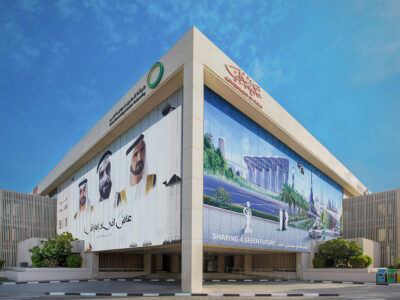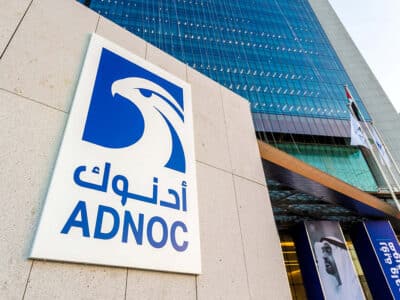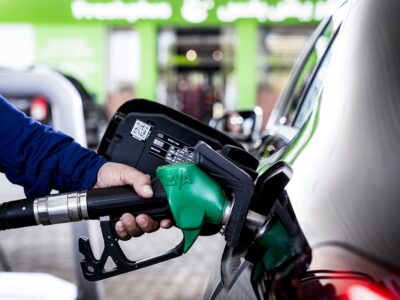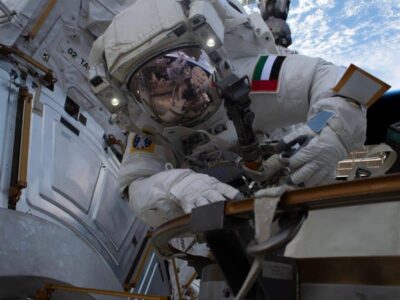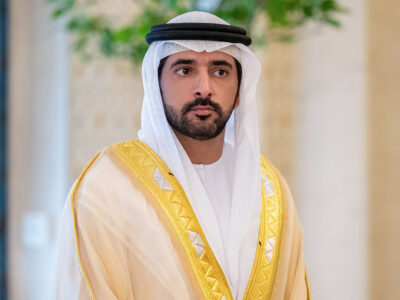Petrol prices in UAE surpassed AED4 per litre in June 2022 for the first time since the fuel price deregulation seven years ago.
Other countries in the region still subsidise fuel to a certain degree, but the UAE deregulated prices in 2015. Petrol prices in the country have since become higher than in other Gulf nations, Bloomberg has reported.
Fuel price movements are affected by a global increase in crude oil prices, which have sored almost 50 percent to more than $100 a barrel since the beginning of 2022.
Many reasons have led to the increase in crude oil prices, including:
- Low energy supply post pandemic as suppliers struggled to keep up with the increase in demand
- Increase in global crude oil prices after the Russia-Ukraine war in February
- Risk of recession, inflationary pressures and economic uncertainty
Petrol prices were visibly higher after the Russia-Ukraine war since Russia is one of the world’s largest oil exporters.
Russian oil imports were banned by many countries including the US, while EU leaders aim to block most of Russian oil imports by the end of the year.
These sanctions have caused an increase in demand for oil from other producers, which has resulted in higher prices.
Petrol prices took a dip across the UAE for August despite high oil prices globally.
However, these are unlikely to come down significantly more until other oil producers are able to increase supplies.
OPEC and the allies led by Russia, called OPEC+ are set to meet again on August 3.
Here is a complete overview of the current situation:
- Petrol prices in UAE lowered for August 2022
- Rising oil and petrol prices continues to be a concern across the globe
- Joe Biden’s visit to Saudi unlikely to resolve energy crisis
- Amid hike in petrol prices, UAE employees ask for fuel reimbursements
Petrol prices in UAE lowered for August 2022
Petrol and diesel prices in the UAE are set to fall in August, after consecutive months of increases since May.
Here’s how much it will cost to fuel up your vehicle in August:
- Special 95 – AED 3.92 a litre
- Super 98 – AED 4.03 a litre
- E-Plus – AED 3.84 a litre
- Diesel – AED 4.14 a litre
Here is an overview of the fuel prices since February 2022:
| Prices in AED per litre | E-Plus 91 | Special 95 | Super 98 | Diesel |
| July 2022 | 4.44 | 4.52 | 4.63 | 4.76 |
| June 2022 | 3.96 | 4.03 | 4.15 | 4.14 |
| May 2022 | 3.48 | 3.55 | 3.66 | 4.08 |
| April 2022 | 3.55 | 3.62 | 3.74 | 4.02 |
| March 2022 | 2.75 | 2.82 | 2.94 | 2.88 |
| February 2022 | 2.75 | 2.82 | 2.94 | 2.88 |
Rising oil and petrol prices continues to be a concern across the globe
Global oil prices could reach a “stratospheric” $380 a barrel according to analysts at JPMorgan Chase, reported news agency Bloomberg.
The price of oil could rocket if US and European penalties prompt Russia to inflict retaliatory crude oil output cuts, JPMorgan Chase analysts warned.
Rising oil prices are proving a concern across the world, with motorists feeling the pinch as petrol prices continue to increase.
A 3 million-barrel cut to daily supplies would push benchmark London crude prices to $190, while the worst-case scenario of 5 million could mean $380 crude, the analysts wrote.

The price of a barrel of Brent crude currently stands at $111.6.
Bloomberg reported that the Group of Seven nations are hammering out a mechanism to cap the price fetched by Russian oil in a bid to tighten the screws on Vladimir Putin’s war machine in Ukraine.
However, given Moscow’s robust fiscal position, it can afford to slash daily crude production by 5 million barrels without excessively damaging the economy, JPMorgan analysts wrote in a note to clients.
“The most obvious and likely risk with a price cap is that Russia might choose not to participate and instead retaliate by reducing exports,” JPMorgan Chase analysts wrote.
“It is likely that the government could retaliate by cutting output as a way to inflict pain on the West. The tightness of the global oil market is on Russia’s side.”
Joe Biden’s visit to Saudi unlikely to resolve energy crisis
US President Joe Biden is set to visit Saudi Arabia on 15 and 16 July at the invitation of the King Salman bin Abdulaziz Al Saud.
During the visit, President Biden will also meet with Saudi Arabia’s Crown Prince Mohammed bin Salman bin Abdulaziz, who is also the kingdom’s Deputy Prime Minister, to discuss areas of bilateral cooperation as well as joint efforts to address regional and global challenges.
The US President’s visit might heal frayed US ties with the kingdom, but it’s unlikely to resolve the energy crisis plaguing the global economy, Bloomberg reported.

“The thing is, there isn’t much more oil in Saudi Arabia and the UAE to really significantly change the market,” Daniel Yergin, a renowned oil historian and vice chairman at S&P Global Inc, told Bloomberg. “The supply situation is so razor thin.”
Saudi Arabia and the UAE – effectively the only two producers with significant spare capacity – hold just under 3 million barrels a day of idle output between them, according to the International Energy Agency in Paris. That’s about 3 percent of demand.
They would need to deploy all of that – pumping on a sustained basis at levels rarely if ever seen before – to offset the losses the IEA expects Russia to suffer in coming months as international sanctions take effect, Bloomberg reported.
And even if they do ramp up, exhausting their spare supplies would only sow fears that no buffer remains to cover future supply emergencies – like a fresh crisis that escalated in Libya this week.
“That’s the last security blanket that exists for the oil market right now,” said Yergin.
Biden’s visit is planned amidst this market havoc and rampant inflation unleashed by Russia’s war in Ukraine.

In a symbol of goodwill, Riyadh and the OPEC alliance of oil producers it leads agreed earlier this month to pump a little extra crude to ease out soaring prices.
But even if the visit secures a promise of additional barrels, it may fail to cool a rally that has propelled US gasoline to unprecedented levels of $5 a gallon and underpinned the inflationary spiral, Bloomberg reported.
In any case, additional supplies of crude oil may do nothing to address what is arguably a more pressing problem: a shortage of oil refining capacity to make gasoline, diesel, and jet fuel.
Years of plant closures have created a bottleneck that’s now doling out bumper profits to refiners, while similarly squeezing motorists and other fuel consumers.
Natural gas prices have also soared because of concern Russian supply could be lost following the invasion of Ukraine, boosting wider energy costs.
“Energy price inflation is a bigger problem than crude oil – it’s beyond Saudi Arabia and its Gulf counterparts to fix,” Bill Farren-Price, a director at Enverus Intelligence Research told Bloomberg.
The absence of a solution from the Middle East means that petrol prices themselves may remain high until the financial pain forces consumers to drive, fly, and purchase less, according to UBS Group AG.
Amid hike in petrol prices, UAE employees ask for fuel reimbursements
Reimbursements for fuel have increased between January and June this year, as employees in the UAE feel the brunt of petrol hike in recent months, a new report showed.
Expenses for fuel reimbursements were up by 38 percent, with the average amount per claim has increasing by 18 percent, according to data from human resource company Bayzat.
The same period also saw a rise in requests for travel reimbursement. The amount spent per month by UAE companies on travel expenses grew over five-fold over the last six months, the data showed.

“In the present business environment, it’s imperative for organisations to know exactly where their operating overheads lie,” Bayzat chief Talal Bayaa said.
He added businesses should be open to embracing “hybrid and remote working,” in the current environment of high fuel prices.
“An obvious solution to keeping petrol and travel reimbursement costs in check would be for organisations to embrace hybrid and remote working as these have already proved highly-effective in keeping employees productive and happy,” Bayaa said.
He explained it was important to understand employees’ evolving needs, especially as “organisations compete in the war for talent.”
“Factors such as flexibility, company culture, career progression and perks all combine to play a critical role in attracting and retaining top professionals,” Bayaa said.
